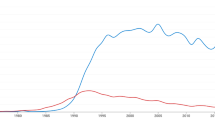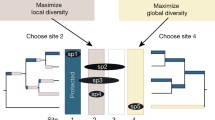Abstract
One of the central justifications for the conservation of biodiversity is the notion that species diversity is essential for the maintenance of ecosystem services. However, an important observation overlooked by proponents of this argument is that most ecosystem services are provided not by whole ecosystems, but by any group of species that fulfils certain basic functional criteria. Distinguishing between services that are resilient in response to species decline, and those that are not, is a far less challenging task than identifying the precise influence on ecosystem functioning of rare species. Conservationists have been almost unanimous in their failure to acknowledge this distinction between resilient and sensitive ecosystem services. Not only does this threaten the credibility of conservation science, but also increases the likelihood that natural area management becomes hijacked by the demand that ecosystem service provision be made the dominant management criteria.
Similar content being viewed by others
References
Barry D, Oelschlaeger M (1996) A science for survival: values and conservation biology. Conserv Biol 10:905–911
Botkin DB (1990) Discordant harmonies: a new ecology for the twenty-first century. Oxford University Press, New York
Chirac J (2005) Address given by the President of France at the UNESCO Biodiversity: science and governance conference, Paris. http://www.ambafrance-uk.org. Cited 21 Aug 2006
Daily GC et al (1997) Ecosystem services: benefits supplied to human societies by natural ecosystems. Issues Ecol 2:1–16
Eamus D et al (2005) Ecosystem services: an ecophysiological examination. Aust J Bot 53:1–19
Ehrenfeld D (1981) The arrogance of humanism. Oxford University Press, Oxford
Ehrenfeld D (1988) Why put a value on biodiversity? In: Wilson EO (ed) Biodiversity. National Academy Press, Washington, pp 212–216
Ehrlich PR, Ehrlich AH (1982) Extinction: the causes and consequences of the disappearance of species. Victor Gollancz, London
Ehrlich PR et al (1997) No middle way on the environment. Atl Mon 280:98–104
Faith DP, Ferrier S, Walker PA (2004) The ED strategy: how species-level surrogates indicate general biodiversity patterns through an ‘environmental diversity’ perspective. J Biogeogr 31:1207–1217
Ghilarov A (1996) What does ‘biodiversity’ mean—scientific problem or convenient myth? Trends Ecol Evol 11:304–306
Guo ZW, Xiao XM, Li DM (2000) An assessment of ecosystem services: water flow regulation and hydroelectric power production. Ecol Appl 10:925–936
Harding R, Fisher E (1999) Introducing the precautionary principle. In: Harding R, Fisher E (eds) Perspectives on the precautionary principle. The Federation Press, Leichhardt, pp 2–25
Hector A et al (2001) Conservation implications of the link between biodiversity and ecosystem functioning. Oecologia 129:624–628
Hooper DU et al (2005) Effects of biodiversity on ecosystem functioning: a consensus of current knowledge. Ecol Monogr 75:3–35
Hughes JB, Petchey OL (2001) Merging perspectives on biodiversity and ecosystem functioning. Trends Ecol Evol 16:222–223
Kremen C (2005) Managing ecosystem services: what do we need to know about their ecology? Ecol Lett 8:468–479
Lawler SP, Armesto JJ, Kareiva P (2002) How relevant to conservation are studies linking biodiversity and ecosystem functioning. In: Kinzig AP, Pacala SW, Tilman D (eds) The functional consequences of biodiversity: empirical progress and theoretical extensions. Princeton University Press, Princeton, pp 294–313
Lerdau M, Slobodkin LB (2002) Trace gas emissions and species-dependent ecosystem services. Trends Ecol Evol 17:309–312
Luck GW, Daily GC, Ehrlich PR (2003) Population diversity and ecosystem services. Trends Ecol Evol 18:331–336
Lyons KG, Brigham CA, Traut BH, Schwartz MW (2005) Rare species and ecosystem functioning. Conserv Biol 19:1019–1024
Mayer P (2006) Biodiversity—the appreciation of different thought styles and values helps to clarify the term. Restor Ecol 14:105–111
Millennium Ecosystem Assessment (2003) Ecosystems and human well-being: a framework for assessment. World Resources Institute, Washington
Millennium Ecosystem Assessment (2005) Ecosystems and human well-being: biodiversity synthesis. World Resources Institute, Washington
Myers N (1996) Environmental services of biodiversity. Proc Natl Acad Sci USA 93:2764–2769
Naeem S et al (1999) Biodiversity and ecosystem functioning: maintaining natural life support processes. Issues Ecol 4:1–12
O’Neill RV (2001) Is it time to bury the ecosystem concept? Ecology 82:3275–3284
Pope John Paul II (1999) Ecclesia in America (Apostolic exhortation, Mexico City, Mexico). http://www.vatican.va/holy_father/john_paul_ii/apost_exhortations. Cited 1 January 2007
Posey DA (ed) (1999) Cultural and spiritual values of biodiversity. United Nations Environment Program, Nairobi
Ridder B (2007) The naturalness versus wildness debate: ambiguity, inconsistency, and unnattainable objectivity. Restor Ecol 15: 8–12
Rosenzweig ML (2003) Win-win ecology: how the earth’s species can survive in the midst of human enterprise. Oxford University Press, New York
Sagoff M (1997) Muddle or muddle through? Takings jurisprudence meets the Endangered Species Act. William Mary Law Rev 38: 825–993
SER (Society for Ecological Restoration) (2004) The SER international primer on ecological restoration. SER International, Tuscon
Slobodkin LB (2001) The good, the bad and the reified. Evol Ecol Res 3:1–13
Steinberg PF (1998) Defining the global biodiversity mandate: implications for international policy. Intl Environ Affair 10:113–130
Takacs D (1996) The idea of biodiversity: philosophies of paradise. The Johns Hopkins University Press, Baltimore
Taylor P (2005) Beyond conservation: a wildland strategy. Earthscan, London
Tokeshi M (1999) Species and coexistence: ecological and evolutionary perspectives. Blackwell Science, Oxford
Tudge C (1989) The rise and fall of Homo sapiens sapiens. Philos Trans R Soc Lond B 325:479–488
van den Belt H, Gremmen B (2002) Between precautionary principle and ‘sound science’: distributing the burdens of proof. J Agric Environ Ethics 15:103–122
Wardle DA et al (2000) Biodiversity and ecosystem function: an issue in ecology. Bull Ecol Soc Am 81:235–239
Weesie P, van Andel J (2003) On biodiversity and its valuation (Research Report by the Centre for Development Studies, University of Groningen, Netherlands). http://cds.eldoc.ub.rug.nl/root/ResRep/2003/200218. Cited 1 January 2007
Western D (2001) Human-modified ecosystems and future evolution. Proc Natl Acad Sci USA 98:5458–5465
Author information
Authors and Affiliations
Corresponding author
Rights and permissions
About this article
Cite this article
Ridder, B. Questioning the ecosystem services argument for biodiversity conservation. Biodivers Conserv 17, 781–790 (2008). https://doi.org/10.1007/s10531-008-9316-5
Received:
Accepted:
Published:
Issue Date:
DOI: https://doi.org/10.1007/s10531-008-9316-5




